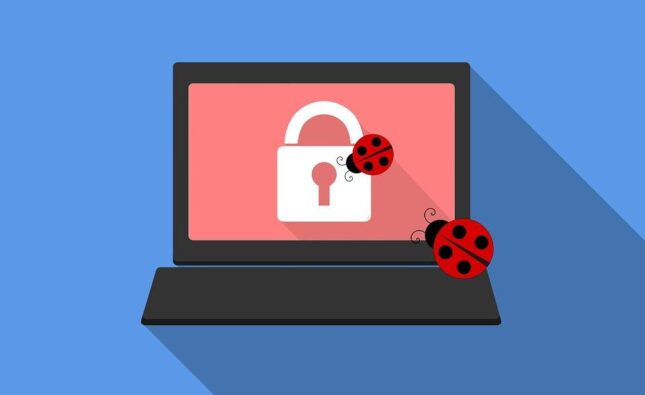
Introduction
In today’s digital era, data has become a valuable asset, driving innovation and transforming industries. With the proliferation of technology and the increasing digitization of our lives, data privacy has become a critical concern. From personal information stored on social media platforms to financial data stored by businesses, the protection of data has become a paramount issue in the realm of technology. In this article, we will delve into the topic of data privacy, exploring its definition, risks, challenges, importance, and best practices.
Understanding Data Privacy
Data privacy refers to the protection of personal information and the control that individuals have over how their data is collected, used, and shared by organizations. Personal data can include a wide range of information, such as names, addresses, phone numbers, email addresses, financial information, and more. With the increasing use of online services, social media, e-commerce, and cloud computing, personal data is often shared and stored in various digital platforms, making it vulnerable to unauthorized access, misuse, and data breaches.
Risks and Challenges of Data Privacy
Data privacy faces numerous risks and challenges in today’s digital landscape. One of the primary challenges is the increasing sophistication of cyber threats, including hacking, phishing, and other malicious activities that aim to gain unauthorized access to personal data. Cybercriminals are constantly developing new techniques and tools to exploit vulnerabilities in software, networks, and systems to gain access to personal data for financial gain or other nefarious purposes.
Another challenge is the proliferation of data sharing and data aggregation practices by organizations. Many companies collect and analyze large amounts of data for various purposes, such as targeted advertising, product development, and market research. However, the widespread collection and sharing of data raise concerns about how personal information is used and shared, and whether individuals have control over their data.
Additionally, the evolving regulatory landscape surrounding privacy presents challenges. With the introduction of regulations such as the General Data Protection Regulation (GDPR) in Europe, the California Consumer Privacy Act (CCPA) in the United States, and other similar laws in various countries, organizations are facing increased scrutiny and legal obligations regarding data privacy. Compliance with these regulations requires significant efforts and resources, and failure to do so can result in severe financial penalties and reputational damage.
Importance of Data Privacy
Data privacy is crucial for several reasons:
Protection of personal information: Personal data is sensitive and can include a wealth of private information, such as financial data, health records, and personally identifiable information (PII). Protecting personal data is essential to prevent identity theft, fraud, and other forms of misuse.
Preservation of privacy rights: Privacy is a fundamental human right recognized by international laws and declarations. Upholding privacy rights is essential to protect individuals’ autonomy, dignity, and freedom of expression.
Trust and reputation: Organizations that prioritize data privacy demonstrate their commitment to protecting their customers’ information, which fosters trust and enhances their reputation. Trust is crucial for maintaining customer loyalty and attracting new customers in today’s competitive business landscape.
Compliance with regulations: Organizations must comply with various data protection laws and regulations to avoid legal and financial consequences. Compliance helps organizations mitigate risks and build a solid legal foundation for their operations.
Ethical considerations: Ethical considerations are increasingly important in the age of data-driven technologies. Organizations must ensure that their data practices aligned with ethical principles, such as transparency, fairness, and accountability, to build public trust and avoid ethical controversies.
Best Practices for Data Privacy
Protecting data privacy requires a proactive approach by individuals and organizations alike. Here are some best practices for ensuring data privacy:
Use strong passwords: Passwords are the first line of defense against unauthorized access to personal data. Use strong, unique passwords for all accounts and change them regularly. Avoid using easily guessable information, such as birthdates or common words, and enable multi-factor authentication wherever possible.
Be cautious with sharing personal data: Be mindful of the information you share online and with whom. Avoid sharing unnecessary personal information on social media or other online platforms, and be cautious about sharing personal data with unknown entities or websites.
Keep software and devices up-to-date: Regularly update your software, operating systems, and devices with the latest security patches and updates. This helps protect against known vulnerabilities that can be exploited by cybercriminals.
Use encryption and secure connections: When transmitting personal data online, ensure that the connection is secure by using HTTPS protocols and look for the lock symbol in the browser address bar. Additionally, use encryption tools, such as virtual private networks (VPNs), to encrypt data transmitted over the internet.
Data Privacy
Limit data collection and sharing: Be selective about the personal data you share with organizations and understand their data collection and sharing practices. Opt-out of unnecessary data collection and sharing, and review privacy policies and consent forms before providing personal data.
Regularly review privacy settings: Review and adjust privacy settings on your online accounts and devices to ensure that you controlling what information collected and shared. Be aware of the privacy settings on social media platforms, apps, and other online services.
Be cautious with email and other communications: Be vigilant against phishing attacks and suspicious emails, messages, or phone calls that may request personal data or login credentials. Verify the authenticity of the communication before providing any information.
Back up data regularly: Regularly back up your important data to a secure location to protect against data loss due to accidental deletion, hardware failure, or other incidents.
Educate yourself and others: Stay informed about the latest threats, best practices, and regulations related to data privacy. Educate yourself and others, including family members, employees, and colleagues, about the importance of data privacy and how to protect personal data.
Also Read: Revolutionizing Connectivity: The Power of Wireless Communication
Conclusion
Data privacy is a critical aspect of our digital world, and protecting personal data is essential for individuals and organizations alike. With the increasing risks and challenges posed by cyber threats, data sharing practices, and regulatory requirements, it is crucial to prioritize data privacy and implement best practices to safeguard personal information. By using strong passwords, being cautious with sharing personal data, keeping software and devices up-to-date, using encryption, limiting data collection and sharing, reviewing privacy settings, being cautious with communications, backing up data, and staying educated about data privacy, individuals and organizations can take proactive steps to protect their digital assets and ensure the privacy and security of personal data in today’s technology-driven landscape.












